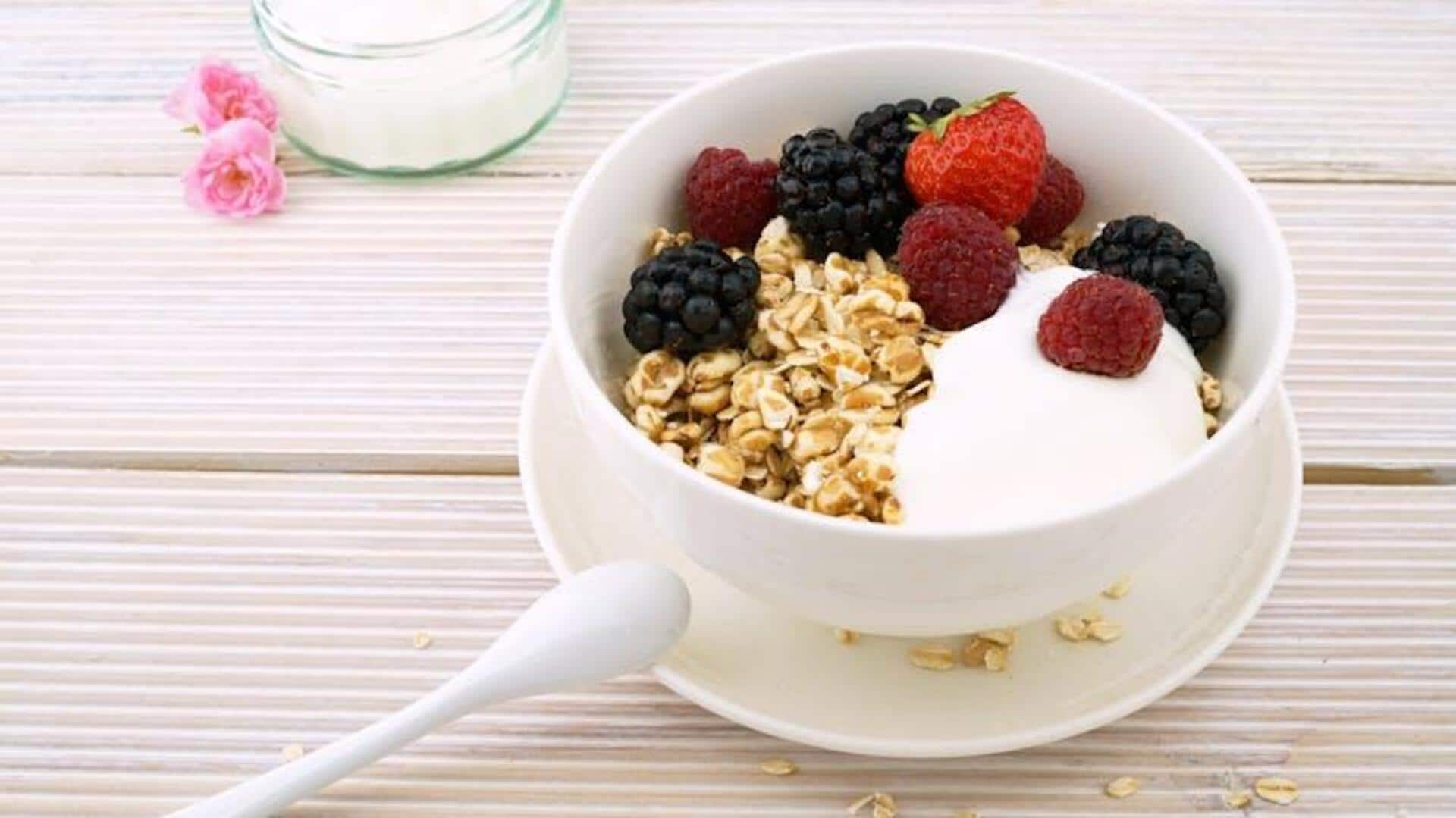
Healthy breakfast tips to energize your morning
What's the story
Starting your day with a nutrition-rich breakfast can make a world of difference to your overall wellness.
A balanced morning meal comes loaded with essential nutrients, boosts energy levels, and keeps the mind sharp throughout the day.
Incorporating whole grains, fruits, and plant-based proteins into your breakfast can do wonders for your healthy lifestyle.
Here are some tips for nutritious breakfasts catering to different dietary preferences and needs.
Grains
Whole grains for sustained energy
Whole grains such as oats, quinoa, and brown rice are great sources of complex carbohydrates.
These carbohydrates give you long-lasting energy by releasing glucose slowly into your bloodstream.
Including whole grains in your breakfast can keep your blood sugar levels stable and keep you full for longer.
How about starting your day with oatmeal topped with fresh fruits or a quinoa salad mixed with veggies?
Fruits
Fruits for vital nutrients
Fruits are loaded with vitamins, minerals, and antioxidants that are beneficial for overall health.
Including fruits such as berries, bananas, or apples in your breakfast can amp up its health quotient while adding natural sweetness.
Fruits also have dietary fiber that helps with digestion and keeps you feeling full.
A smoothie made with blended fruits or a fruit salad with yogurt can be refreshing options.
Proteins
Plant-based proteins for muscle health
Adding plant-based proteins like nuts, seeds, tofu, or legumes to your breakfast is good for muscle health and repair.
These protein sources are packed with essential amino acids the body requires to build tissues and enzymes.
Add chia seeds to smoothies or almond butter on whole-grain toast for an additional protein boost.
Dairy
Dairy alternatives for calcium intake
For those who are dairy-free by choice or lactose intolerant, several dairy-free alternatives still offer the calcium intake needed for maintaining healthy bones without sacrificing taste quality too much either way.
Almond milk, fortified soy milk, and coconut yogurt are all excellent substitutes for standard cow's milk products.
They offer similar benefits when consumed regularly as part of a balanced diet plan tailored to individual needs and preferences alike.